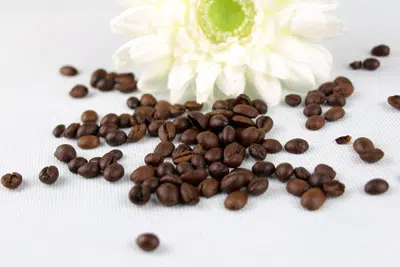Invite your plants for a cup of coffee every now and then! Because if the green plants could speak human words, their answer to the favorite brown beverage would be a resounding yes. Likewise when it comes to tea. They look incredulous? Well, hot the two drinks may not be served to them. But cooled, they quench their thirst for water and are also an excellent source of nutrients.
Contents
Nutrients in the coffee cup
The brown liquid not only tastes good to us and makes us cheerful. It can also provide plants with liquid and also offer them some substances that are essential for healthy plant growth. The three most important elements are:
- Nitrogen
- Potassium
- Phosphorus
But other useful elements such as magnesium and sulfur are also contained in the brown liquid. In contrast, there are no substances that harm the plants or soil health. Coffee is therefore a good biological fertilizer.
Houseplants and outdoor specimens
The minerals contained in the coffee beverage are utilized by all green and flowering plants, even though the individual requirements may differ. There is no difference whether a plant grows in a pot or stretches its roots in a garden bed. For indoor plants, the brewed beverage is even more suitable as a fertilizer than coffee grounds, which are difficult to decompose in the pot and therefore quickly become moldy. However, it is important that the beverage cools down completely beforehand. Also, the cup contents should not contain additives such as milk and sugar.
Lowering the pH value
Coffee is only weakly acidic, so the contents of a cup in a larger flower pot does not significantly affect the pH of the soil. But if the plant is regularly watered with it, this statement can not remain so. As is well known, the dose makes the effect. Thus, soil that is regularly fertilized with coffee drinks becomes increasingly acidic, and the pH value drops. For some plants it becomes a hostile environment. Therefore, before watering with this household fertilizer need to find out what pH the cultivated plant species.
Ideal dose
The effect of a quantity of coffee always depends on the ratio of its quantity to the soil in the pot. To prevent acidification in houseplants, you should follow these recommendations for medium-sized pots:
- dilute 1:1 with water beforehand
- do not water with it more often than once a week
- no more than half a cup per plant
These plants like coffee
Given the diversity of plants on this planet, the following list can never claim to be exhaustive. If your favorite plant is not listed, cold coffee does not have to end up in the sink. Inform yourself specifically about their soil requirements, gladly also on our website. Here are now the plants that like to “drink” coffee:
- Cyclamen
- Amaryllis
- Azaleas
- Begonias
- Blueberries
- Bromeliads
- Ferns
- Hydrangeas
- Gardenias
- Orchids
- Rhododendrons
Test compatibility
If you are not quite sure whether a plant tolerates the coffee residue, you can carefully test it. Start with a small dose, which you gradually increase. Of course, provided that the plant does not then show any adverse changes such as leaf wilting or discoloration. Otherwise, stop the administration of this agent immediately.
Watering with black tea
Black tea is used similarly to coffee drink, because it also tends to benefit plants that prefer acidic soils. In its use, the focus is on nutrient supply, or leftovers can be put to good use. The tein is also said to have a disinfectant effect. Some users report an extended blooming period of flowers watered with it. The tea should not be steeped or diluted for a long time. Additives such as sugar, milk or lemon are also undesirable here.

Other teas
A variety consisting of herbs can also be suitable for watering plants. The active ingredients of some herbal teas are able to do even more than just provide nutrients. Most of these teas have a tonic effect, one or another variety is even suitable as a biological pesticide.
- Chamomile tea has antibacterial effect
- can be used for fungal infestation in the pot
- Nettle tea is effective against lice
- Water and spray the plant with it
If you like to drink different kinds of tea and spoil your plants with cooled leftovers for no particular reason, there is nothing wrong with it. Start with a small dose to find out which of the used varieties is tolerated by the plants.
Tea bags in the water
Instead of specifically making tea or waiting for leftovers, you can hang a few tea bags in the watering can. It doesn’t matter that the water is cold. The tea bags are allowed to linger in it for a long time. In this way, over time, more and more ingredients are released into the water.


